
views
Evaluating Draining Relationships
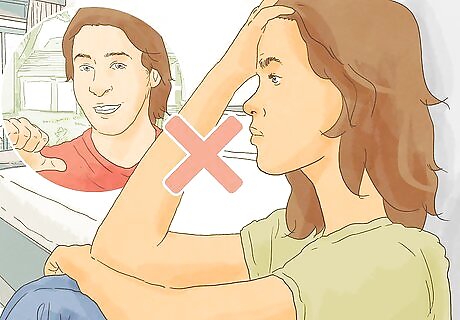
Determine if you are in a draining relationship. When you’re in a relationship it should be beneficial for both involved. However, some toxic relationships leave one of the parties feeling depleted and even exposed. If this sounds familiar, you could be in a draining relationship. Energy-draining people in relationships often start out as fun, flashy, exciting, and charismatic. But over time, you may see that they like to gossip or use people—even you. They might even use you as their scape goat and set you up to take the fall. If your gut tells you this person has ulterior motives, you are probably right.
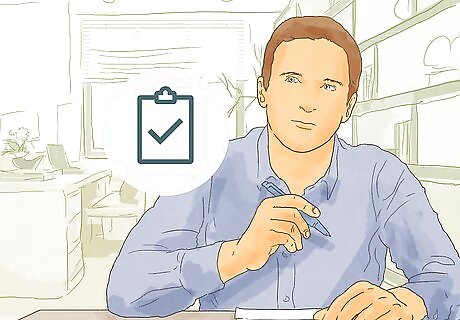
Make a list of “pros” and “cons” about the person. If you’re still undecided about if you’re in a draining relationship, write it out. Compose a list of the good things and bad things about that person. Also, taking a look at the characteristics of the party in question may open your eyes about their intentions. Make sure you include the way the person makes you feel. Chances are, if there are more “cons” than “pros,” you’re in a draining relationship. Additionally, write a pros and cons list about ending the relationship. If the pros are longer than the cons, it may be time to cut things off.
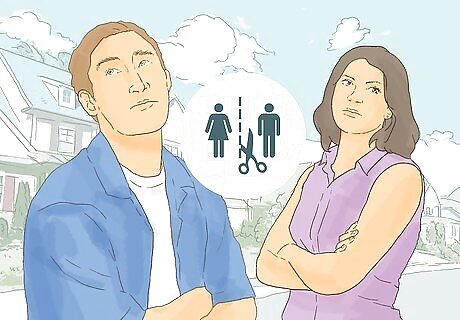
Terminate the relationship, if you can. Some relationships just aren’t worth saving, including those that are draining. If you aren’t able to be yourself in the relationship and it’s not worth the effort that you’re putting into it, consider cutting ties. Staying in a relationship with a draining person prevents you from being happy, both physically and emotionally. When you end the relationship, make sure you are committed to doing so. Often, even spending just a little amount of time with the person who is draining you can cause anguish and despair. If possible, walk away completely and don’t look back. Keep in mind that this is harder if you are living together or married.
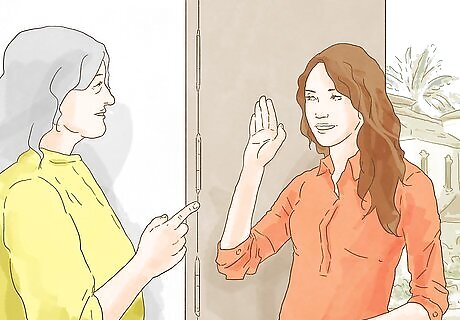
Limit contact if you can’t end the relationship fully. Some relationships just can’t be severed completely. Sometimes, you still have to maintain some kind of communication with certain people, such as co-workers and family members. By distancing yourself, however, you can reduce the strain you feel. Relationships with co-workers and family members are tricky because you often still have to spend time with them no matter what. However, you can reduce your time together by skipping after work activities you would typically participate in together and not calling or texting anymore. You may have to directly address the person if they question why you are pulling away. If you want to be honest, you can tell them, “I feel like our relationship has taken a turn for the worst. I think it’s best to limit our time together.” You may experience some pushback and anger, but hopefully, it will settle down over time.
Learning to Say “No”
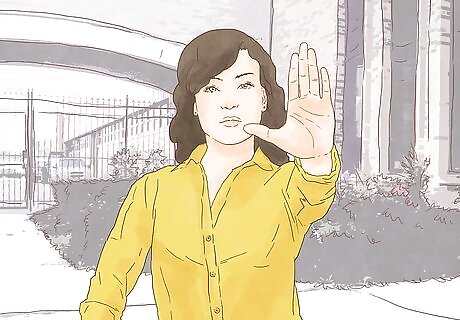
Understand that saying “no” isn’t mean. If you’re a people pleaser, you’ve likely spent most of your life saying “yes.” Maybe you’re afraid you’ll upset people if you say “no,” or you don’t like doing it because you honestly want to help. Either way, you must understand that saying “no” isn’t an attack on the person; it’s a way to save you. Always doing what people ask you to do can drain you both physically and mentally. When you say “no,” you are essentially putting your needs in front of that person, which may be uncomfortable for you. But understand that if you’re constantly saying yes, particularly to things that the other person could do for themselves, you’re prone to burning out. When you’re in this state, you can’t be your best, which means you and those closest to you could suffer. Also, remember that it is not selfish to take care of yourself. It is necessary!

Create a stall technique. Being put on the spot can make even the most confident people weak in the knees. These situations often cause people to agree to things they wouldn’t normally do otherwise. One way to avoid this is to stall your answer, so that you have time to formulate an effective response. For instance, if you are asked to do something you know that you don’t want to do, you could say, “Let me think about it” or “Can I get back to you?” This gives you a chance to build the confidence to say no and come up with an answer you feel comfortable with giving.

Practice saying the word. It may sound silly, but spending time actually saying “no” can help you when the need calls for it. Say it when you’re alone, like when you’re in the shower or driving to work. Having experience saying it can make you feel more comfortable when the time comes to use it. You can also practice a response to go with it. For example, you could say, “I’m sorry but my schedule isn’t going to allow me to do that.” You could also say, “I appreciate you coming to me for help, but I’m afraid I can’t.” You don’t need to get into the details of why you can’t, unless you want to. Frankly, it’s no one’s business as to why you can’t help. You can also write your answer down to help make it more concrete.

Compromise, instead. If you really want to help but can’t in the way you are asked, try to develop a compromise that works for you. This may make you feel less guilty, but also helps you protect yourself and stick to your guns. For example, if your friend wants you to shuttle her kids around to school every day, try to create a schedule where you can one or two days a week. If your family member wants you to loan them money, try to help them come up with a budget instead.
Creating a Realistic Daily Schedule

Decide what your priorities are. Taking a shower, eating meals, and going to work are priorities, but you may want to reconsider helping your friend give her dog a bath. The key to stopping yourself from getting drained when making a schedule is to prioritize. Although you may have to make sacrifices here and there, you’ll likely make up for it when you feel less stressed. There’s a chance you could upset people if they aren’t included in your priorities. However, you have to ask yourself what is more important, pleasing others or taking care of yourself or your family?
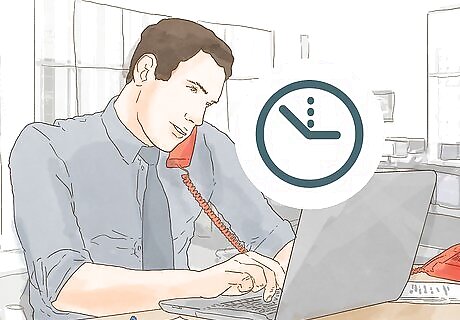
Write down how long tasks take. When compiling your daily schedule or “to-do” list, make sure to include how long each task will take to complete. Be honest with yourself when thinking about the time table. Cramming too much into your day will drain and overwhelm you. You don’t have to be exact in your timing; use 30 minute increments to guide you. You’ll likely have some wiggle room using that method which allows you to finish early or late in some activities and still be on time.
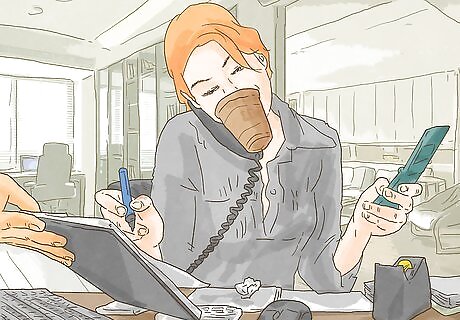
Stop multi-tasking. Perhaps one of the most exhausting activities a person can engage in is multi-tasking. Although you may think you are being productive when you try to accomplish a variety of tasks all at the same time, you actually aren’t. Spending large amounts of time dedicated to one project is better. Commit to focusing on one project at a time. If you’re worried you will neglect other work, set a timer and put it aside once the buzzer sounds.



















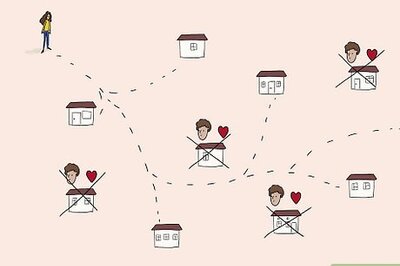
Comments
0 comment